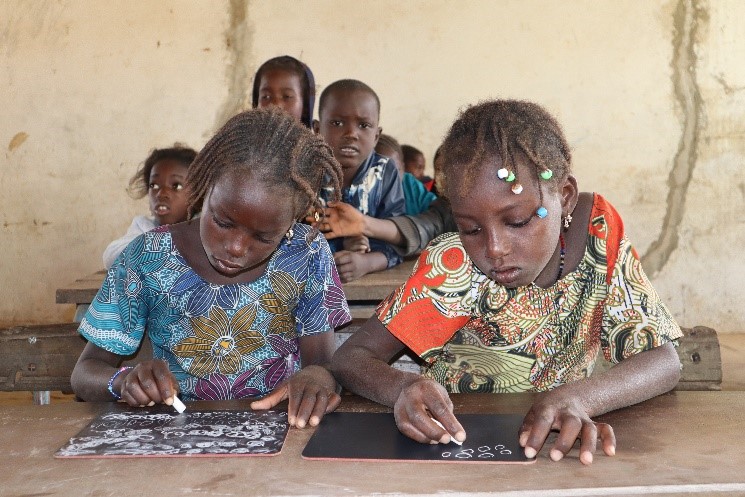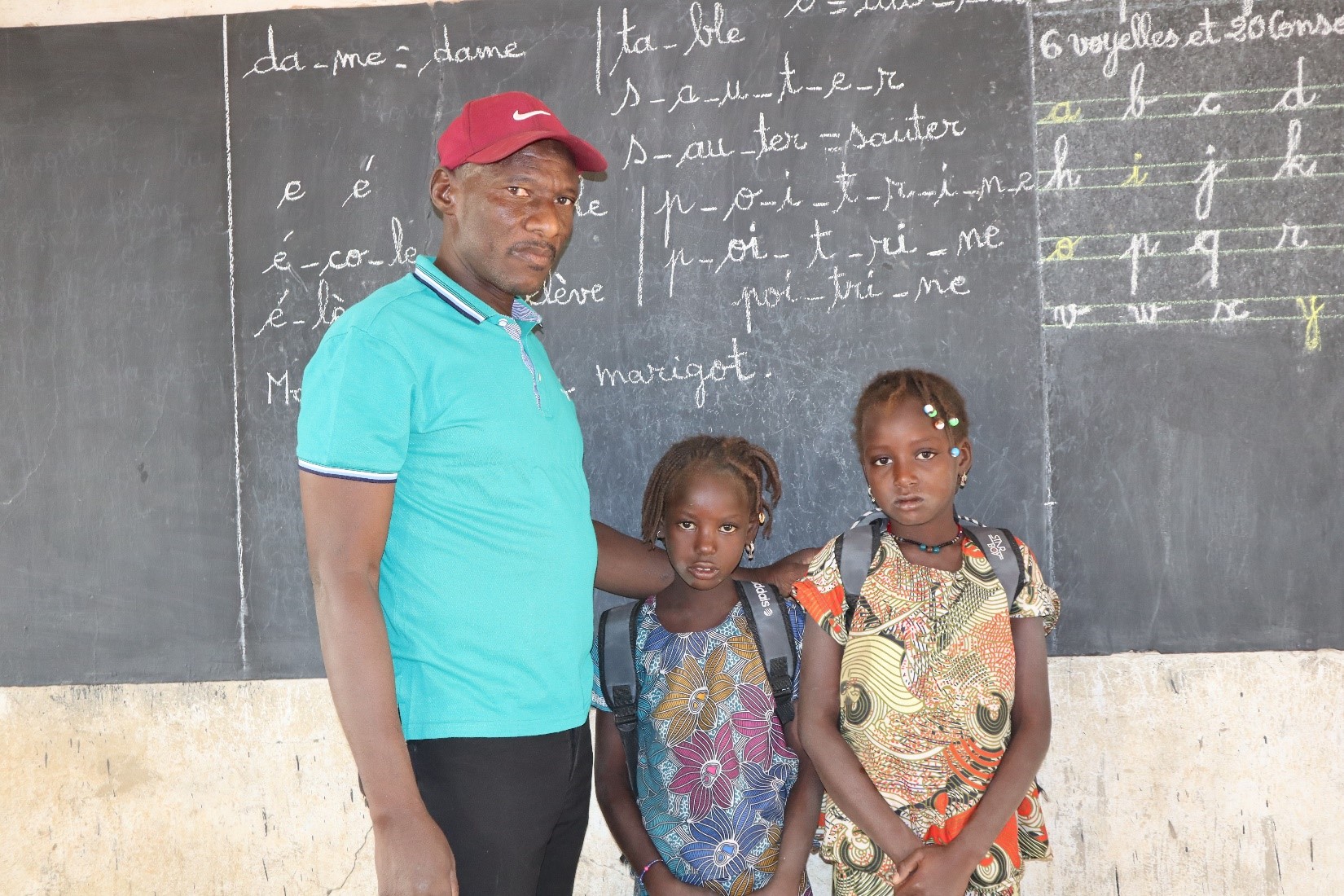Empowering Futures: How NPI EXPAND Supported Girls in Mali with Access to Education
September 10, 2024

Koumba Diallo and her younger sister Kadia, ages 8 and 7 years old, live with their father Samba Diallo in the tiny village of Thiendel, two kilometers from Niamiga in the in the Kayes region. Koumba and Kadia stay at home and have never set foot in a classroom. Their father believed that educating girls was pointless, so he preferred to keep them at home to do household chores.
According to UNICEF, 73.8% of girls in Mali are enrolled in primary school, in comparison to 85.8% of boys. Girls’ participation in schools positively impacts their and the community’s futures. Girls’ education helps to improve maternal health, reduce infant mortality, improve household nutrition, and increase the potential workforce and opportunities for economic growth.1
The USAID-funded NPI EXPAND project works in the in the Kayes region in partnership with the Regional Department for the Promotion of Women, Children and Family, and the One Stop Center funded by the United Nations Population Fund (UNFPA), to identify and address various forms of violence against women and girls. As a part of routine monitoring activities, field agents from NPI EXPAND support and coach community actors to visit households with children to monitor nutritional status and discuss health and gender issues.
During one of these home visits in late 2023, a field agent noticed that the two sisters were not attending school. With the support of the field supervisor and the region’s gender focal point person, supported by NPI EXPAND, the field agent initiated a series of discussions with the father to explain the benefits of girls’ schooling not only for their own futures, but for the welfare of the community.
After several days of discussion, Samba Diallo agreed to send his daughters to school, but didn’t know the process to follow. The girls had no birth certificates, and the academic year was already well underway. Staff from NPI EXPAND contacted the administrative leadership to obtain the administrative documents needed to enroll the girls in school. After a plea from the field agent to Niamiga’s primary school administration, the school’s Director agreed and admitted Koumba and Kadia into the school in December 2023.
Koumba and Kadia have adapted quickly and attend their classes regularly at the Niamiga school.
“Having these two girls in my class today is a sign of hope,” says Abdoulaye Tièba Sissoko, a teacher at the Niamiga Primary School. “In 22 years of service, not many girls have been so lucky. Koumba and Kadia are the proof of the attitude change regarding girls’ schooling. This is a great hope.”
During December of 2023, 1,025 home visits were conducted similar to the one made to the Diallo’s were conducted, which have positive impacts on girls’ enrollment in school. Thanks to USAID, several young girls across Mali have been enrolled in school and will have the chance at a brighter future.
